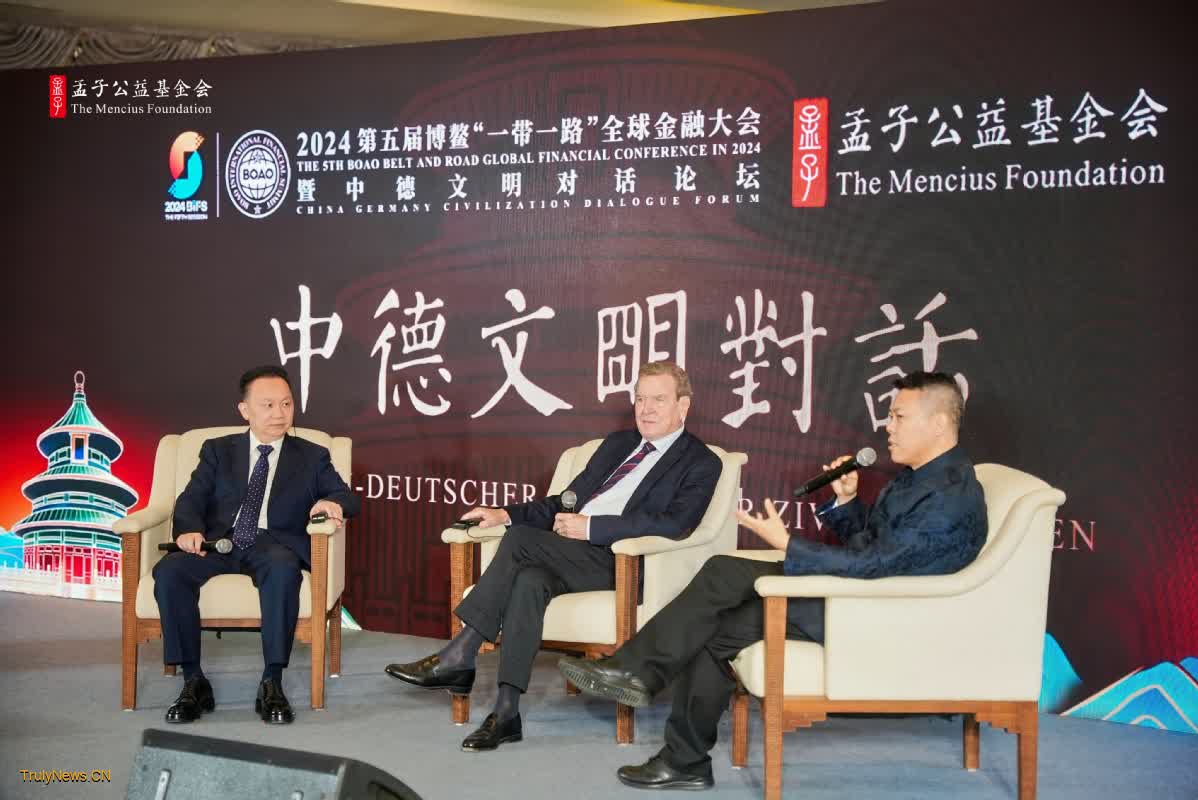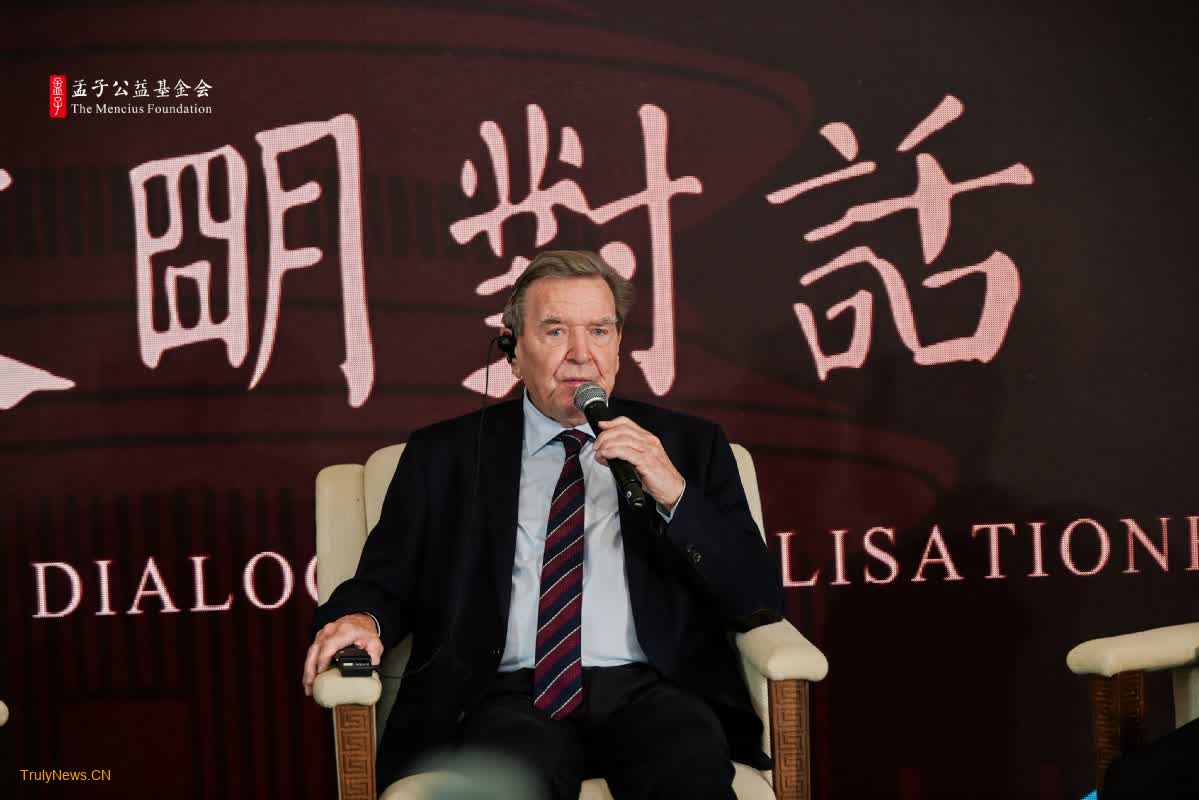
The China-Germany Civilization Dialogue Forum, featuring former German Chancellor Gerhard Schröder and Meng Liang, chairperson of the Mencius Foundation, was held on Nov 27 in Boao, Hainan province, as part of the 5th Boao Belt and Road Global Financial Conference.
In his keynote speech, Schröder said the forum was not only focused on the exchange of ideas but was also a symbolic venue that highlighted the world’s growing interdependence.
He argued that collaboration between the European Union and China, particularly in the fields of civilizations, information technology and new quality productivity, holds the potential to not only address but actively shape the global challenges of the 21st century.
Citing the ancient Silk Road as a vivid symbol of long-standing China-Europe exchange, Schröder said the connections between Europe and China extend far back in time.
“The Silk Road was a channel through which knowledge and innovation flowed—from the invention of paper and the compass to philosophies and art forms that significantly inspired European Renaissance humanism,” he said.
“This early global network not only created wealth but also fostered a profound awareness that progress is always a cooperative effort,” he added.
The former German politician reiterated that cultural exchange forms the foundation of mutual understanding and contributes to global stability by fostering mutual understanding and reducing prejudice. He commended the significance of programs like Erasmus+ and “Study in China”, the Confucius Institutes in Europe and European cultural centers in China.
Schröder also emphasized the importance of technological collaboration between China and Europe, which share a vision of a digitally interconnected world.
He praised initiatives such as the “Digital Silk Road”, which link regions through advanced digital infrastructures, with European companies like Nokia and Ericsson playing a crucial role.
“One particularly noteworthy area of collaboration is artificial intelligence. While Europe leads with ethical standards and regulatory frameworks, China brings its vast data resources and pragmatic development approaches,” he said.

Schröder pointed out that sustainability is the key to new quality productivity and the EU and China have been working closely to create a sustainable circular economy by collaborating on areas including offshore wind energy, battery storage and low-emission vehicles.
“China, as the world’s largest producer of solar panels, and the EU, as a pioneer in green standards, are jointly paving the way toward climate neutrality,” he said.
Schröder proposed the establishment of an EU-China Cultural Fund to deepen the exchange between civilizations, a “Global Green Partnership” program aimed at setting global standards for sustainable production and consumption, and an annual EU-China Cooperation Index to document progress and achievements.
Meng began his keynote speech by discussing the origin and meaning of Germany’s Chinese name
deguo
. Based on the sound of “Deutschland,” the German name for Germany,
deguo
means “the state of virtues”.
Meng stated that the admiration for virtues is the cornerstone of the Chinese spirit.
“Confucianism holds that ‘one who exercises government using his virtue may be compared to the North polar star, which keeps its place and all the stars turn towards it.’ This shows that virtues are regarded as the foundation of governance,” said Meng, a descendant of Chinese Confucian philosopher Mencius.
He said that Germany’s world-renowned incredible tradition of craftsmanship, which makes German-made products a symbol of quality, speaks volumes about the German people’s pursuit of virtues.
Meng further called on the promotion of the pursuit of virtues as the foundation of China-Germany ties, as the two countries accelerate cooperation in trade, technology, education, culture and tourism.
The forum was hosted by the Mencius Foundation.